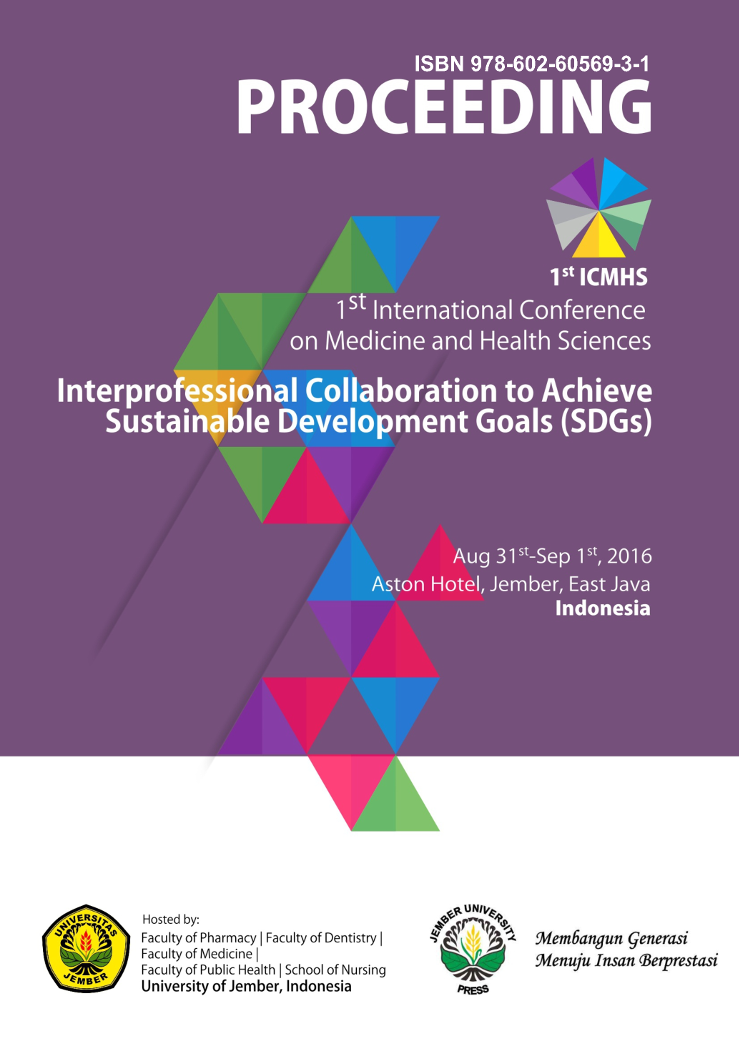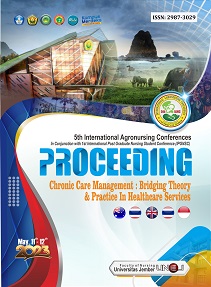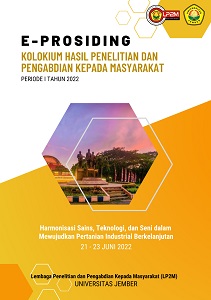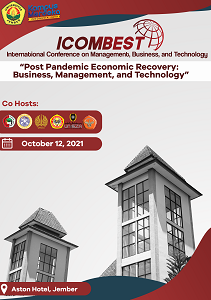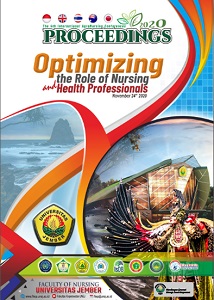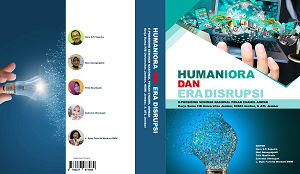ROBUSTA COFFEE BEANS INCREASE LEVELS OF TNF-α AS A RESPONSE TO Streptococcus mutans
Abstract
Coffee plant is commodity exports that wasencouraging because it has relatively high economic
value in the world market. Coffee plantations are
managed by people, and this day its grow continually
in several provinces in Indonesia so expansion is
increasing continuously. Coffee production in
Indonesia ranks the fourth largest in the world after
Colombia, Brazil and Vietnam (Zainuddin and
Murtisari, 1995; Simanihuruk and Sirait, 2010). In
addition, the coffee plant is one of the leading
commodities developed in Jember. Chemical content
of coffee such as flavonoids, xanthine, antioxidants,
alkaloids, polyphenols can serve as a bitter taste,
antibacterial, platelet aggregation. The
bioavailability of polyphenols coffee has also been
studied (Scalbert et al., 2000; Coralie et al., 2006;
Naziq, 2012).
Namboodiripad and Srividya (2009) prove the
existence of the inhibition zone coffee against S.
mutans. These bacteria are structurally and
antigenetically express a surface protein that are
called antigen I / II, B, Sr and PAC that have a
molecular weight of 185 kDa. These antigens by the
researchers were assigned that play a role in the
pathogenesis of dental caries, and its are effective as
a vaccine in the prevention of dental caries. I/II
antigens of S. mutans have properties of adhesive,
that the bacteria are used attachment to host
components during colonize and infection, so its
become the focus of a number of researchers. These
surface-antigen proteins have an effect in the
attachment of S. mutans with acquired pellicles on
tooth surfaces (Yuliati, 2005). The immune responses
of dental caries were associated with cytokine such
as IL-1 β, α, IL-1 and TNF-α that were expressed
odontoblast layer. It is said that bacteria excretion a
extracellular virulence-immunomodulatory protein
(VIP, which has a mitogenic effect on lymphocytes,
suppress the immune response of the host and
induces production of IL-10, which is an
immunosuppressor cytokines. So, VIP is an
important virulence factor produced microorganisms
and closely associated with the pathogenicity of
bacteria (Gomes et al., 2006).
Thereby, it is said that coffee could be expected
to inhibit dental caries by means of modulate the
immune response. The paradigm change stated that
the tissue replacement turns into tissue
regeneration that was cause approach of medical
materia that geared to a biologically tissue
improvement. Biocompatible materials indicate that
it can be accepted by the body (Harty and Ogston
(1995), and the coffee was clearly meets these
requirements.
The current utilization of the coffee plant in the
modulates an immune response against S. mutans
that is cause a dental caries that have not been
studied, so arises problem how the
immunomodulatory potential of robusta coffee
beans against dental caries ?
The general objective of this research is to analyze
the immunomodulatory potential of robusta coffee
beans against dental caries, whereas the aim in
particular is analyze the influence of robusta coffee
beans against TNF-α levels in response to S. mutans.
Published
2017-01-27
How to Cite
LESTARI, Pujiana Endah et al.
ROBUSTA COFFEE BEANS INCREASE LEVELS OF TNF-α AS A RESPONSE TO Streptococcus mutans.
UNEJ e-Proceeding, [S.l.], p. 162-164, jan. 2017.
Available at: <https://jurnal.unej.ac.id/index.php/prosiding/article/view/3854>. Date accessed: 22 dec. 2024.
Section
General

